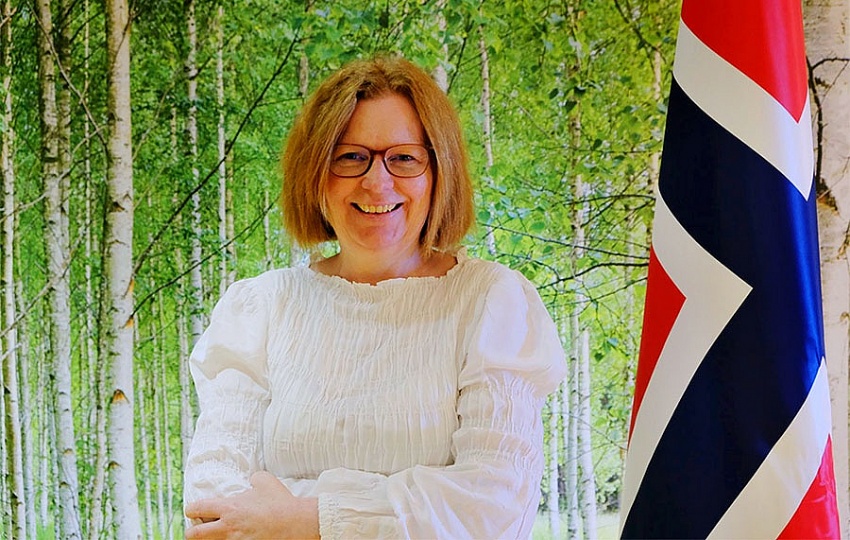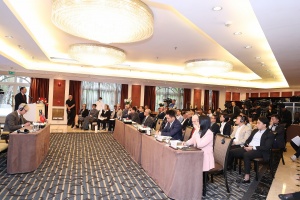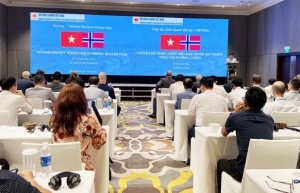Norway stands ready to collaborate with Vietnam in EPR policy and practices
Norway implemented extended producer responsibility (EPR) regulations for beverage packaging 30 years ago and currently leads the EU with a recycling rate of up to 97 per cent. What experiences have helped Norway effectively remain years ahead of other countries in implementing this?
 |
| Deputy head of mission from the Norwegian Embassy in Vietnam, Mette Moglestue |
Setting ambitious policy goals is of utmost importance for Norway. We are not hesitant to establish high policy standards in order to promote innovation and creativity. While businesses may express concerns, in reality, they can effectively implement regulations and ambitious state policies regarding standards and EPR targets while still achieving successful business operations.
This is not only Norway’s experience, but many other countries have also successfully implemented these measures, and Vietnam should consider doing the same.
Another successful experience we are applying is the mechanism of dialogue in the process of formulating policies. The Norwegian government has been actively engaging in regular and continuous dialogues with all relevant stakeholders, including research institutes, private enterprises, and the media, to ensure that the interests of all parties are taken into account in the policymaking process.
We aim to develop an effective EPR policy and ensure its successful implementation in practice. In addition, we have also established numerous platforms and forums for all stakeholders to share their knowledge and opinions during the policy-making process of the government.
What is your assessment of Vietnam’s current EPR implementation policies?
Vietnam has made significant progress as one of the first countries in Southeast Asia to implement EPR measures. The introduction of EPR has ensured that producers or companies are responsible for the cost of managing hazardous materials or substances that may harm the environment.
Indeed, Vietnam should build upon this starting point to further improve and strengthen the policy mechanisms, ensuring the effective enforcement of such regulations. Absolutely, EPR will be one of the crucial measures to help Vietnam achieve its goals of developing a circular economy and transitioning towards a greener future. We highly appreciate this ambition.
In Vietnam, the informal waste collection sector plays a crucial role. Encouraging the participation of informal workers in the sector will be a significant step towards achieving equitable transition in Vietnam.
ERP goes beyond environmental concerns and also promotes economic development, fosters collaboration in the recycling value chain, creates job opportunities, and expands markets for recycled products. With this approach, Vietnam will address the challenges of plastic waste and contribute to the sustainable and long-term development of the economy in the future.
What are the prospects for cooperation between the government and businesses of Norway and Vietnam in implementing these methods?
Norway places a high priority on effectively managing waste, particularly promoting recycling. We are proud to be one of the countries with a very high rate of recovery and recycling of plastic bottles and packaging. In addition, we also place great importance on promoting the implementation of EPR as an effective tool to ensure efficient waste management. We are ready to share our experiences in building and implementing policies with Vietnam.
Currently, Norway has been closely collaborating with the Ministry of Natural Resources and Environment in Vietnam to develop relevant policies.
I hope that in the future, Norwegian businesses can also contribute by sharing their technologies to ensure that Vietnamese partners can effectively participate in the implementation of government policies.
 | Norway and Vietnam to boost aquaculture ties The Norwegian Embassy in Hanoi and the Vietnam’s Ministry of Agriculture and Rural Development (MARD) last week co-organised a seminar to discuss cooperation opportunities in aquaculture and seafood. |
 | Norway and Vietnam collaborate on energy transition The participation of the private sector is seen as an important aspect of implementing Power Development Plan VIII and promoting Vietnam's goal of transitioning from fossil fuels to clean and renewable energy sources. |
What the stars mean:
★ Poor ★ ★ Promising ★★★ Good ★★★★ Very good ★★★★★ Exceptional
Related Contents
Latest News
More News
- Masan Consumer names new deputy CEO to drive foods and beverages growth (February 23, 2026 | 20:52)
- Myriad risks ahead, but ones Vietnam can confront (February 20, 2026 | 15:02)
- Vietnam making the leap into AI and semiconductors (February 20, 2026 | 09:37)
- Funding must be activated for semiconductor success (February 20, 2026 | 09:20)
- Resilience as new benchmark for smarter infrastructure (February 19, 2026 | 20:35)
- A golden time to shine within ASEAN (February 19, 2026 | 20:22)
- Vietnam’s pivotal year for advancing sustainability (February 19, 2026 | 08:44)
- Strengthening the core role of industry and trade (February 19, 2026 | 08:35)
- Future orientations for healthcare improvements (February 19, 2026 | 08:29)
- Infrastructure orientations suitable for a new chapter (February 19, 2026 | 08:15)

 Tag:
Tag:


















 Mobile Version
Mobile Version